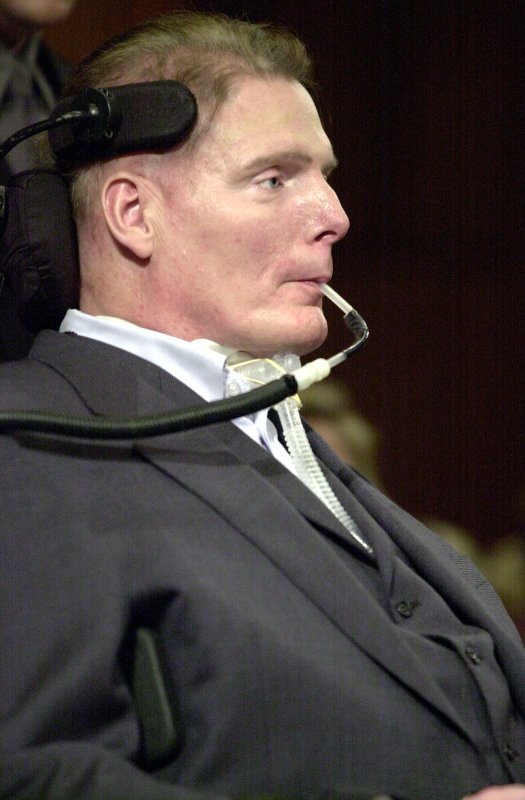1 of 2 | For those who cannot talk, only $5,000 keeps them from emailing.
Paralyzed actor Christopher Reeve could speak, but he was an advocate for those with similar injuries. jr/jr/Joel Rennich UPI |
License Photo
ALBANY, N.Y., July 1 (UPI) -- After 30 years of research, a New York state laboratory says it's developed technology for the sick and paralyzed who cannot talk to email using brainwaves.
Jonathon Wolpaw, who leads the team at the New York state Health Department's Wadsworth Center in Albany, said what could only be imagined by science fiction writers is now reality for those with amyotrophic lateral sclerosis or Lou Gehrig's disease, spinal cord injuries, strokes or other conditions that destroyed their ability to communicate.
"The communication is being produced completely by brain activity," Wolpaw told the Albany Times Union.
In a demonstration, the researchers placed a cap fitted with electrodes -- filled with gel to conduct the brain's electrical activity through wires running to an amplifier and computer -- on the subject.
A computer screen with a standard blank page and a grid with the alphabet, numbers and other items, was placed in front of the study subject. Another screen showed the subject's brain waves, which were recorded through electroencephalography, or EEG.
The study subject concentrated on the desired letter and after 300 milliseconds, the EEG registered a change in the brain waves and the chosen letter appeared on the page.
Although the process is slow compared to texting, the system unlocks the brain of patients who cannot otherwise communicate.
The system has been tested by 40 users and appears ready for widespread use. The only barrier is about $5,000 per patient to set up the computers and train the caregivers to use the cap with electrodes, Wolpaw said. The fee also includes troubleshooting to ensure the system is working as designed.
For example, a professor at the University at Pennsylvania, mentally agile but stripped of mobility by ALS, runs his laboratory using the system.















